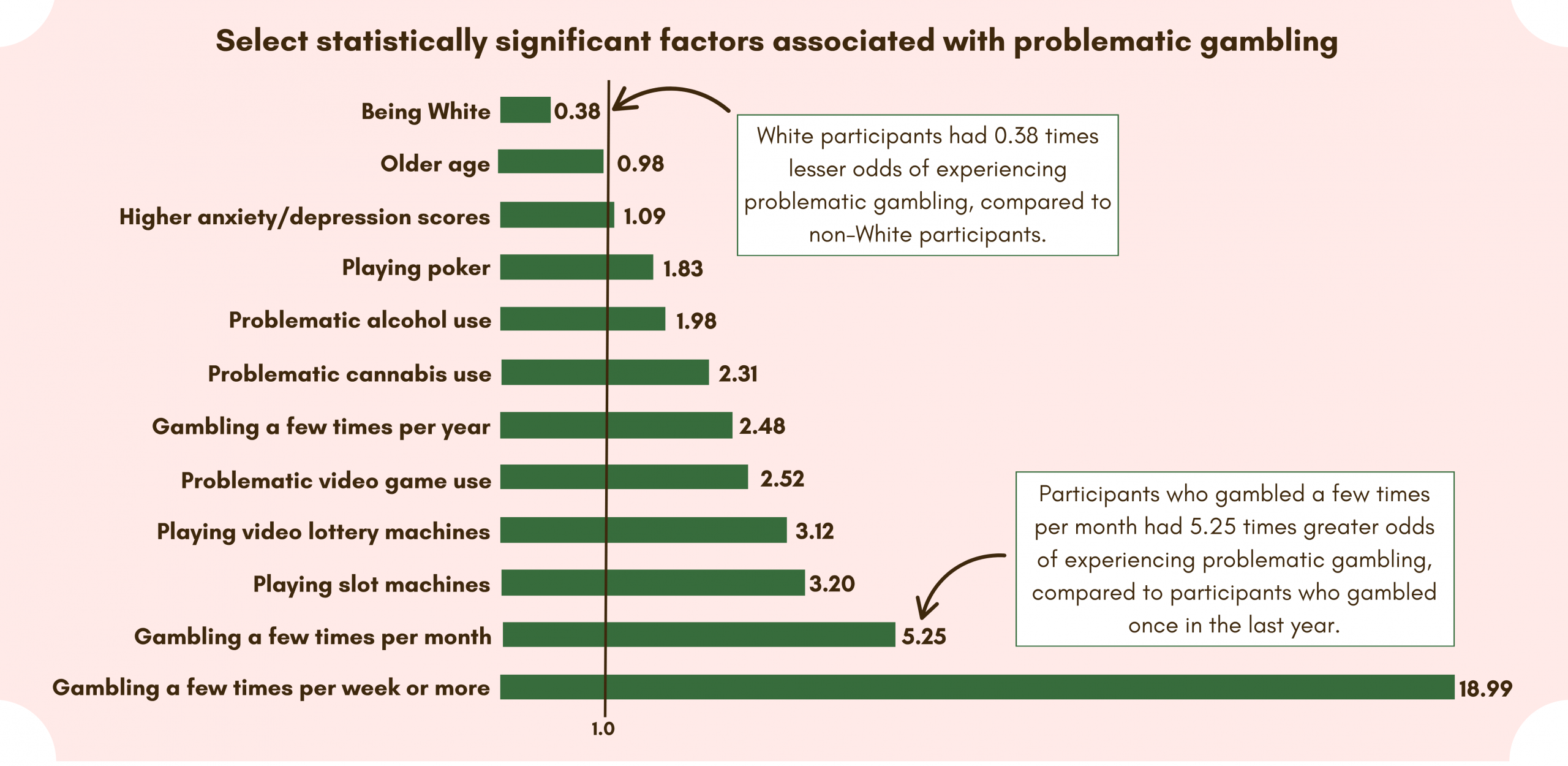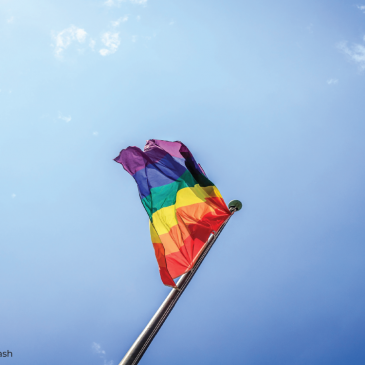Psychiatric comorbidity, such as substance use and mental health disorders, is common among those with problem gambling. It is also common among sexual minority populations (i.e., LGBTQ+), in part, due to the higher rates of discrimination and violence that they may experience compared to their heterosexual and cisgender counterparts. According to minority stress theory, these factors might contribute to poor mental health and the development of addictive behaviors, potentially including problem gambling. This week, The WAGER reviews a study by Magaly Brodeur and colleagues that examined gambling tendencies and explored factors associated with problematic gambling among LGBTQ+ individuals.
What were the research questions?
(1) How do LGBTQ+ individuals gamble and (2) what factors are associated with problematic gambling among this population?
What did the researchers do?
The researchers developed an online panel of 1,519 LGBTQ+1 identifying adults, using stratified random sampling to ensure the sample was representative of the Canadian population. Participants completed an online survey that measured sociodemographic characteristics, such as age and ethnicity, past-year gambling habits, problem gambling severity, and mental health. Participants were separated into two problem gambling score categories: no-to-low-risk gambling and problematic (i.e., moderate to high risk) gambling. The researchers used a multivariate logistic regression analysis to determine factors associated with problematic gambling.
What did they find?
The most common forms of gambling among the entire sample were lottery tickets (75%) and scratch tickets (68%). Among those exhibiting problematic gambling, poker (53%) and video lottery machines (51%) were most prominent. Approximately one-fifth (19.6%) of participants exhibited problematic gambling. The logistic regression model identified factors associated with lower odds of experiencing problematic gambling, such as being older and White, and higher odds of experiencing problematic gambling, such as gambling more frequently, engaging in problematic substance use, engaging in certain types of gambling, and experiencing higher rates of depression/anxiety (see Figure).

Figure. Displays the odds ratios of select factors associated with problematic gambling among LGBTQ+ participants that were found to be statistically significant. Click image to enlarge.
Why do the findings matter?
The findings indicate that problematic substance use and poor mental health, along with gambling patterns, are associated with problem gambling symptoms among LGBTQ+ individuals. In doing so, they support the role of minority stress in problematic gambling. Connecting clients to community support organizations like Boston GLASS might help relieve minority stress while providing resources and offering opportunities to engage in activities that do not involve gambling. Additionally, providers should apply an intersectional lens to understand how other marginalized identities, such as non-White race, may influence a person’s vulnerability to addictive behaviors, like gambling.
Every study has limitations. What are the limitations in this study?
This study was cross-sectional, which means we cannot conclude that the identified factors caused problematic gambling. Additionally, the sample sizes for some of the subgroups was small, which might make prevalence estimates inflated or unstable, so those particular results should be interpreted with caution. Finally, qualitative studies could provide a deeper understanding of the role that identity and minority stress play in the LGBTQ+ population’s relationship with gambling.
For more information:
Visit the National Council on Problem Gambling for support for someone struggling with a gambling problem. The National Alliance on Mental Health offers a list of resources for the LGBTQ+ community and allies. For additional resources, including gambling and self-help tools and mental health screeners, visit our Addiction Resources page.
— Nakita Sconsoni, MSW
Want CE credit for reading BASIS articles? Click here to visit our Courses Website and access our free online courses.
________________
1. More specifically, the researchers surveyed LGBTQIA2S+ individuals. This acronym stands for Lesbian, Gay, Bisexual, Transgender, Queer/Questioning, Intersex, Asexual, 2-Spirit, and other gender identities/sexual orientations not explicitly listed.




